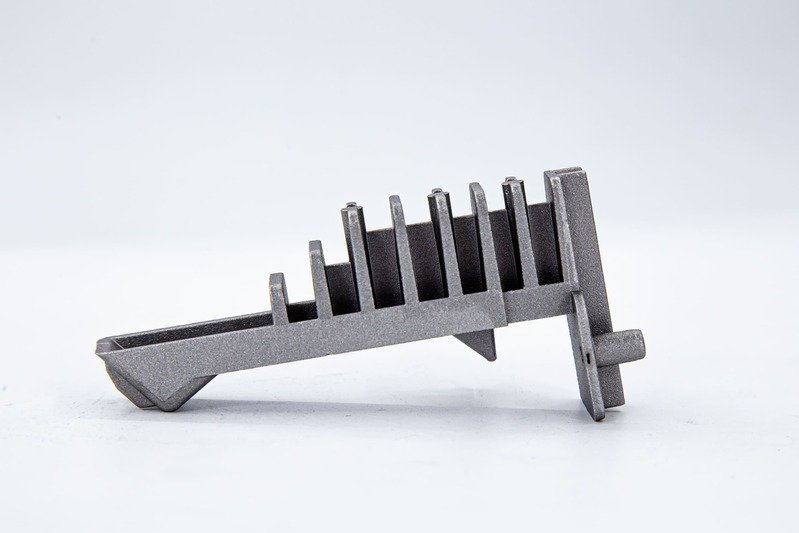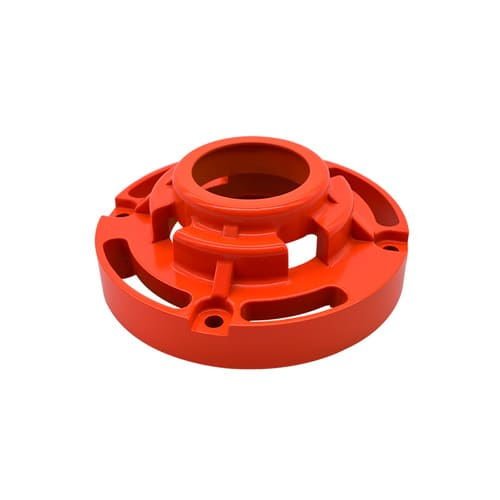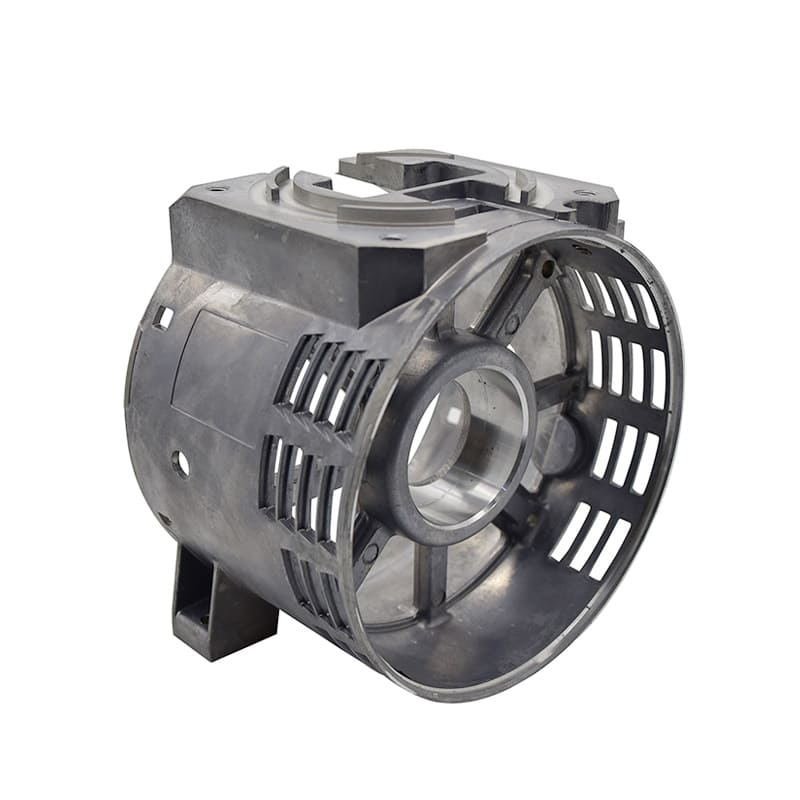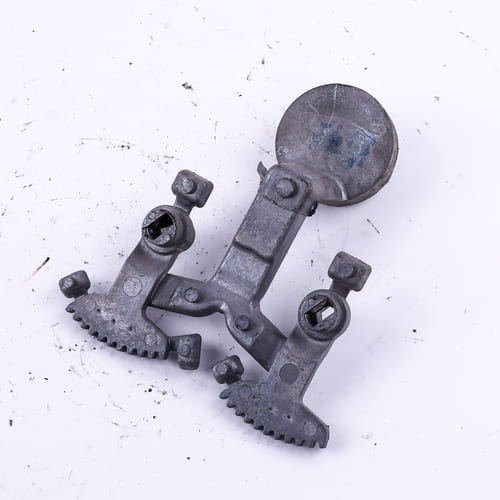Die-cast aluminum alloys are the perfect materials to meet the growing needs of major sectors like the automobile and aerospace. They are useful in a variety of high-impact applications due to their special characteristics. They are more useful than other alloys because they are usually used to make lightweight parts and have better surface finishing potential.
Now that you know, it’s crucial that you understand how each aluminum alloy has distinct characteristics that make it suitable for the die-casting process.
In the world of aluminum die-casting, Castingod is an expert in creating high-quality aluminum die castings for a range of industries, including consumer products, automotive, electronics, and aerospace. Additionally, the range of products also includes gearbox components, electrical enclosures, and decorative trim are included in the product line.

In this article, we’ll cover the characteristics of die-cast aluminum alloys, as well as how they can be used for various die-casting operations and how they are made in factories. Let’s begin!
Die Cast Aluminum Alloys
Aluminum (Al) is one of the lightweight construction metals with a specific gravity of 2.7. It serves as the foundation for alloys used in die casting that mostly contain silicon, copper, and magnesium. The designer has the most options among the four main alloy groups with eight die-cast aluminum alloys, which also create the greatest number of die castings in terms of component tons produced.
Die Cast Aluminum Cookware
Diecast is formed by melting metal and pouring it into a mold. Cookware made with this method is denser and heavier than typical cookware. As a result, die-cast aluminum cookware conducts heat more effectively and distributes heat more uniformly. It is perfect for cooking at lower temperatures because it also maintains heat longer.
Castingod has over 20 years of experience in the aluminum die-casting sector and has produced numerous electrical parts with accuracy and precision. As a result, clients benefit not only from the remarkable qualities of aluminum but also from a well-manufactured, high-quality product.

Die Cast Aluminum Alloys Benefits
Aluminum plays a vital role in the selection of die-cast aluminum alloys and allows us to make use of its many advantages, which are as follows:
It Is Lightweight
Aluminum alloys are lightweight, with a density of about 2.67g/cm3. Die-cast aluminum’s small weight benefits the vehicle’s overall weight reduction. As a result, fuel efficiency improves.
It is an Effective Electric Conductor
Electricity is efficiently conducted by die-cast aluminum. Its thermal conductivity is 120 W/mK. As a result, it is useful in processes that require heat dissipation, such as those involved in the production of heat sinks.
Outstanding Machinability
The excellent machinability of aluminum alloys is another important characteristic.
Aluminum is simple to machine using typical methods such as drilling and milling. Additionally, it functions well with more advanced techniques like CNC machining. Due to the casting process, aluminum has a more solid surface, making CNC machines more efficient to use.
Corrosion Resistant
Another important feature that makes aluminum alloys in great demand is their ability to resist corrosion. This is because when exposed to air, a thin film of aluminum oxide (Al2O3) usually gathers on it. It guards against the metal reacting with the environment.
High Ratio of Strength to Weight
Die-cast aluminum alloys have a good strength-to-weight ratio despite being relatively light. It is suitable for applications requiring strength because it is always strong.
Has High Precision
Die-cast aluminum alloys have a high level of precision, making them simple to cast into complex designs. It quickly melts due to its low melting point of 660 degrees, which makes it simple to cast into molds. Additionally, because of its high fluidity, it can quickly fill mold voids. As a result, the parts are more precise and detailed.
Significant Radio-Frequency Interference and Electromagnetic Interference
High electrical conductivity is a property of this alloy. Additionally, it can make electromagnetic waves weaker. Because of this, EMI and RFI shielding qualities are improved. As a result, it is a common material to use in electrical components that need to be shielded from interference from outside sources.
Die-cast aluminum alloys have become popular for their ability to produce lightweight components with a wide range of surface finishing options.
Aluminum is extremely corrosion-resistant and can tolerate the highest temperatures. Furthermore, aluminum can be used anywhere and maintains a high level of structural integrity with thin walls. Aluminum Die Casting Alloys
Some of the most special and important reasons for using aluminum die-casting alloys are as follows:
- They help improve automation’s fuel economy by reducing component weight.
- They are often used in system administration and framework gear in telecommunications and accounting firms.
- They also provide EMI/RFI shielding, performance, and durability due to its small weight.
- Aluminum alloys are known to be ideal for electronics, accommodation, and medical devices due to their exceptional electrical execution and shielding capabilities, even in high operating temperature situations.
Aluminum alloy die-casting uses a steel mold that can produce hundreds of thousands of castings quickly. In order to allow for casting removal, the die must be manufactured in at least two parts. The die-casting press clamps the two die halves securely to start the casting cycle.
Aluminum is introduced into the die cavity while still liquid, where it immediately solidifies. These parts are positioned in a machine so that one is fixed and the other is mobile and securely mounted there. Casting is ejected once the die halves are separated.
Depending on how complicated the casting is, die-casting dies can be straightforward or complicated, with movable slides, cores, or other parts.
The majority of machines include locking mechanisms that are activated by hydraulic cylinders. Others use hydraulic pressure that acts directly. All die-casting machines, regardless of size, differ solely in how molten metal is injected into the die.
Aluminum Die Cast Alloys
Aluminum die-cast alloys that are often used include A380, 383, B390, A413, A360, and CC401. Your purpose should be the main factor taken into account when selecting an appropriate alloy.
As an example, the A360 has great pressure tightness, excellent fluidity, and excellent corrosion resistance. B390 has been used for applications like automotive engine blocks because it has exceptional wear resistance, high hardness, and the least ductility of any high-pressure die-casting aluminum alloys.
The most widely requested alloy for casting a wide range of products is alloy A380 because it is the ideal all-purpose alloy, providing an excellent mix of casting and product qualities.
| Alloy | Corrosion Resistance | Resistance to Hot Cracking | Anodizing | Machinability | Common Applications |
| A380 | Fair | Very Good | Good | Good | Lawnmower housings, hand tools, gear cases, and bench vises |
| A360 | Excellent | Excellent | Good | Good | Outboard motor components, irrigation system components, instrument enclosures, and hinges |
| 383 | Good | Excellent | Good | Very Good | Appliances, furnishings, power tools, cylinder head coverings, and engine brackets |
| A413 | Excellent | Excellent | Good | Fair | Street lamp housings, dental equipment, and outboard motor pistons |
| B390 | Fair | Good | Fair | Fair | Brake cylinders, cylinder heads, manifolds, blocks, and pistons for internal combustion engines |
| 518 | Excellent | Poor | Excellent | Excellent | Castings for buildings, components for conveyors, and hardware for boats and airplanes |
aluminum die casting alloy composition
Here is a table that compares various aluminum die-cast alloys. The first column lists their chemical makeup. The single numbers in the list below are the highest composition percentages. Additionally, you can see the different mechanical and physical characteristics of high-pressure die-casting aluminum alloys in the second comparison chart.
| Alloy | Si | Cu | Mg | Mn | ||
| EN 1706 | AA | Empty Cell | Empty Cell | Empty Cell | Empty Cell | |
| Chemical symbol | Numerical | Empty Cell | Empty Cell | Empty Cell | Empty Cell | Empty Cell |
| AlCu4MgTi (a) | 21100 | 204.0 | 0.20 | 4.2 5.0 | 0.15 0.35 | 0.10 |
| AlCu4MnMg | 21200 | 206.0 | 0.10 | 4.0 5.0 | 0.15 0.50 | 0.20 0.50 |
| AlSi7Mg03 | 42100 | A356.0 | 6.5 7.5 | 0.05 | 0.25 0.45 | 0.10 |
| AlSi7Mg06 | 42200 | 357.0 | 6.5 7.5 | 0.05 | 0.45 0.70 | 0.10 |
| AlSi10Mg | 43000 | 360.0 | 9.0 11.0 | 0.05 | 0.20 0.45 | 0.45 |
| AlSi10MnMg | 43500 | 365.0 | 9.0 11.5 | 0.05 | 0,10 0.60 | 0.40 0.80 |
| AlSi12(b) | 44100 | B413.0 | 10.5 13.5 | 0.05 | 0.45 | 0.10 |
| AlSi9Cu3(Fe) | 46000 | 333.0 | 8.0 11.0 | 2.0 4.0 | 0.15 0.55 | 0.55 |
| AlSi8Cu3 | 46200 | 333 | 7.5 9.5 | 2.0 3.5 | 0.05 0.55 | 0.15 0.65 |
| AlSi7Cu3Mg | 46300 | 320.0 | 6,5 8.0 | 3.0 4.0 | 0.30 0.60 | 0.20 0.65 |
| AlMg3 | 51100 | 514.0 | 0.55 | 0.05 | 2.5 3.5 |
Aluminum Die Casting Applications
Aluminum castings increase vehicle fuel efficiency by helping to meet weight reduction standards. Aluminum castings offer lightweight EMI/RFI shielding, stiffness, and durability for handheld electronics.
Die-cast aluminum is perfect for electrical connectors and housings due to its superior electrical efficiency and shielding qualities, even in high-temperature situations.
Castingod is a famous Chinese aluminum alloy die-casting manufacturer that is proudly building a name for itself in the aluminum die-casting industry. We provide a complete one-stop solution with a primary focus on optimizing the conception and creation processes for all customers.
As a result, we can help with every step of the method, from the initial design through the casting and that essential surface treatment in our outstanding facility.








